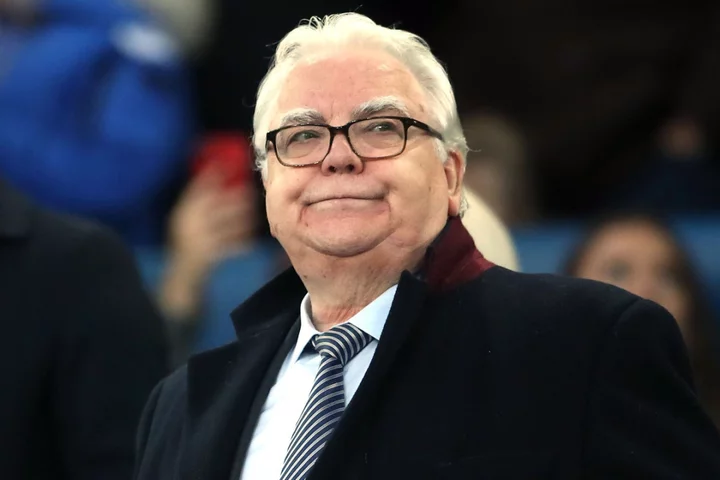
Everton to address Bill Kenwright future following trio of board departures
Everton have begun overhauling their board by announcing a trio of departures led by chief executive Denise Barrett-Baxendale, with the future of chairman Bill Kenwright set to be addressed in the next 48 hours. Barrett-Baxendale, chief finance and strategy officer Grant Ingles and non-executive director Graeme Sharp have left their roles a fortnight after the club escaped relegation from the Premier League on the final day of the season. Everton will announce their interim replacements, along with a decision on the future of Kenwright, this week. Along with Kenwright, the three directors had been prevented from attending matches at Goodison Park since mid-January because of fan opposition that entailed “threats to safety and security”. “The outgoing directors have worked tirelessly over recent months to assist with the preparation for a transition to a new board,” an Everton statement read. “The club is very appreciative of this generous accommodation, which is both characteristic of them and entirely in the spirit of the best values of our club.” Everton have cumulative losses of more than £430million and the exit of the directors was seen as inevitable with American investors MSP Sports Capital poised to buy into the club. “We have all been fully committed during our time here and are disappointed to have made the decision to leave Everton,” a statement from the three directors read. “We have worked tirelessly alongside our chairman in what has been a challenging period to deliver some of the most significant projects in Everton’s history – projects that will safeguard and sustain the commercial future of the club for generations to come. “It has been an honour and a privilege to serve as directors. We would like to thank everyone who has supported us during our time here. We wish the club we have loved to serve every success in the future.” Read More Charity boss speaks out over ‘traumatic’ encounter with royal aide Ukraine war’s heaviest fight rages in east - follow live
1970-01-01 08:00
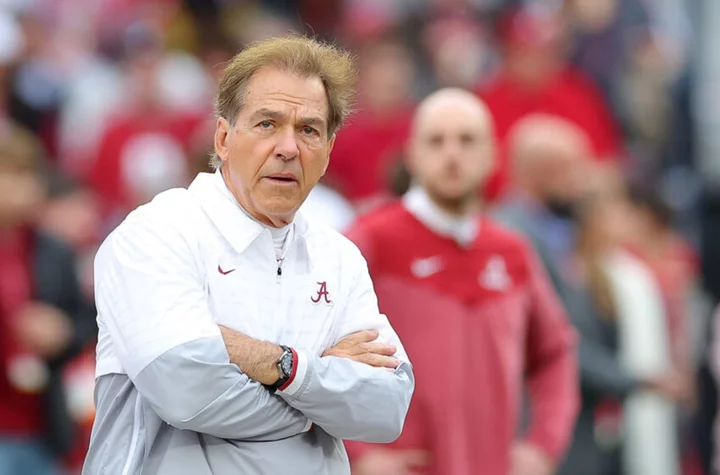
Will Alabama's quarterback conundrum keep them from the College Football Playoff?
Until Alabama figures out who will be the Crimson Tide's starting quarterback, it will be awfully hard to pencil them into the final four-team College Football Playoff field for this season.Alabama may have upwards of five promising quarterbacks on their roster, but who is going to start ga...
1970-01-01 08:00
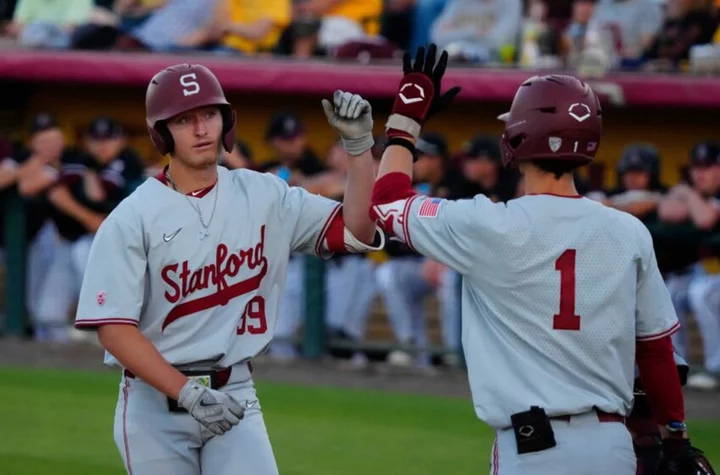
Texas vs. Stanford prediction and odds for College Baseball World Series (Bet OVER in Game 3)
Stanford is off one of the most memorable wins of the college baseball season as starter Quinn Mathews preserved the team's bullpen by tossing 156 pitches in Sunday's season extending win against Texas.Texas and Stanford head to a Game 3 on Monday night in Palo Alto with both teams loo...
1970-01-01 08:00
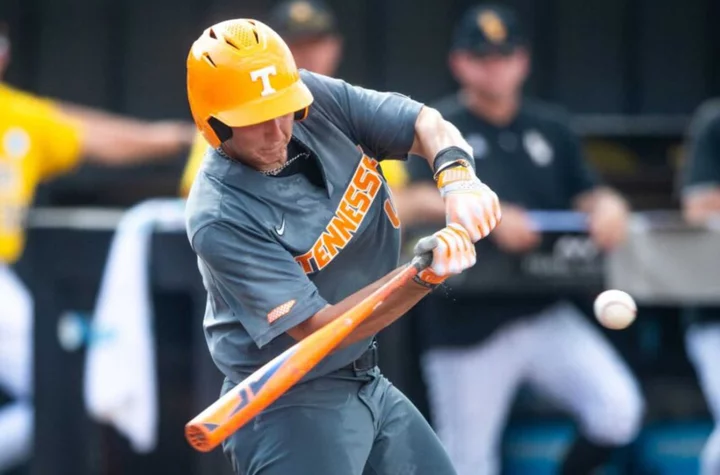
Southern Mississippi vs. Tennessee prediction and odds for College Baseball World Series (Vols advance)
After staring elimination in the face, Tennessee extended its season by rattling off eight unanswered runs to beat Southern Mississippi in Game 2 of the Hattiesburg Super Regionals.Tennessee will look to advance to Omaha, Nebraska as big favorites in Game 3, but can Southern Mississippi's p...
1970-01-01 08:00
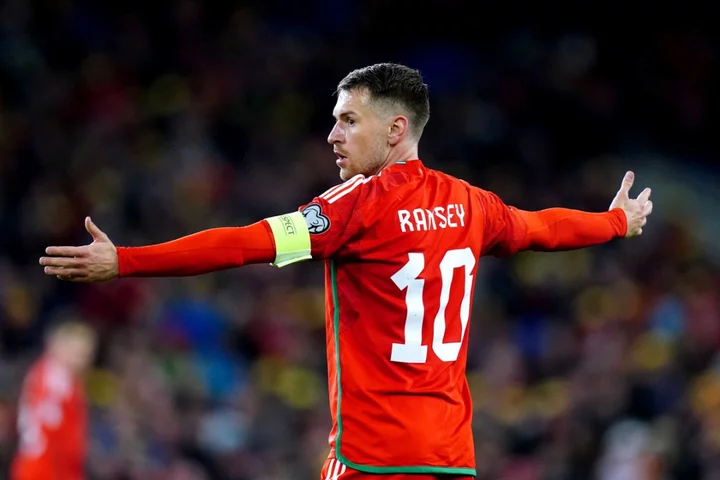
Aaron Ramsey ‘fully focused’ on Wales amid uncertainty over future with Nice
Aaron Ramsey insists his focus is fully on Wales’ Euro 2024 ambitions amid uncertainty over his Nice future. Ramsey has triggered a one-year contract extension at Nice after playing more than 30 games for the Ligue 1 club this season. But it has been reported in the French media that the 32-year-old midfielder wants a longer deal to stay at Nice and that may not be forthcoming. “I’m not sure what my future is at the moment,” Ramsey said ahead of Wales’ Euro 2024 double-header against Armenia and Turkey. “The most important thing is for me to focus on these games. “We will find out in a few weeks’ time, when everything has settled down a bit. “My full focus is on Friday (against Armenia). I’ll have to keep you guys (the press) waiting a bit longer.” Ramsey says his family, who have stayed in Cardiff while he has played in France and travelled to and from Wales, will be instrumental in the decision over his playing future. I'm not sure what my future is at the moment. We will find out in a few weeks' time, when everything has settled down a bit Aaron Ramsey It has led to speculation that Ramsey could return to Cardiff this summer, the Sky Bet Championship club where he began his career before moving to Arsenal in 2008 and spending 11 seasons in north London. That particular rumour mill went into overdrive last week when Cardiff chairman Mehmet Dalman told supporters to expect an “exciting” signing this summer. Ramsey said: “There’s always rumours going around, isn’t there? There is always that bit of noise. “This season has been a success for me personally, I played a lot of games and some good football. The only thing missing was a few goals, but that will come again. “The most challenging thing is being away from my family. That’s the situation I find myself in. “I’ve been away from my family and seeing the kids growing up, missing out, it’s always difficult. Difficult for anyone to go through, I imagine. “Whatever we do going forward, we will be reunited and back together.” Wales host Armenia in Cardiff on Friday before heading to Turkey three days later, having made a positive start to Euro 2024 qualifying. Rob Page’s side picked up four points from their opening two games in March, drawing away to World Cup semi-finalists Croatia before beating Latvia at home. Ramsey said: “This is a massive camp for us. The World Cup was a huge disappointment for us, and it was important to get off to a good start. “To bounce back straightaway in those two games sets us up nicely. “It’s huge now to back that up against Armenia. It’s a game we need to win and all our attention is on that.” Ramsey missed Nice’s last four games of the season with a calf problem. But he is confident of playing roles against both Armenia and Turkey, saying: “The last couple of weeks I did not play, but before that I had a good run of games. “I got myself in good shape so there’s not too much to be worried about. “I’ve had a good season and we had a bit of a European run as well. I’m 100 per cent ready to play to help us win.” Read More Charity boss speaks out over ‘traumatic’ encounter with royal aide Ukraine war’s heaviest fight rages in east - follow live Hugo Salabio facing six-match ban for spear tackle Manchester City’s treble winners arguably greatest ever English team – Joe Royle Brentford turn Kevin Schade loan move into permanent club-record deal
1970-01-01 08:00
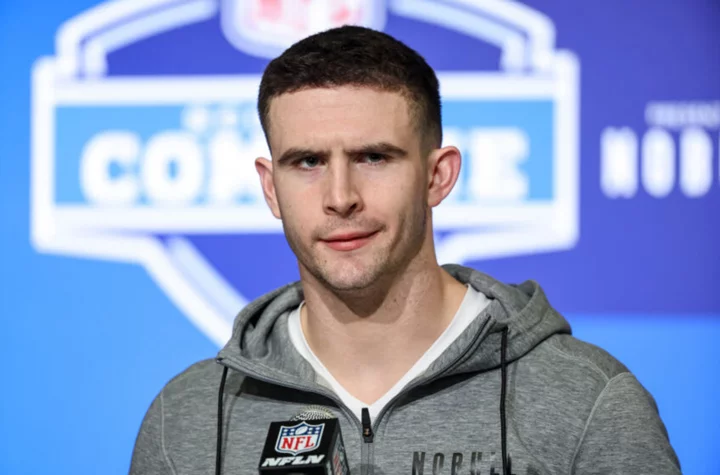
Georgia football: Explaining Stetson Bennett IV's beef with Senior Bowl director
Let's try to understand why former Georgia football star Stetson Bennett IV is not a fan of Senior Bowl director Jim Nagy, especially after his comments disparaging one Baby Gronk.Senior Bowl director Jim Nagy is not a fan of Baby Gronk, and Georgia football legend Stetson Bennett IV is not...
1970-01-01 08:00
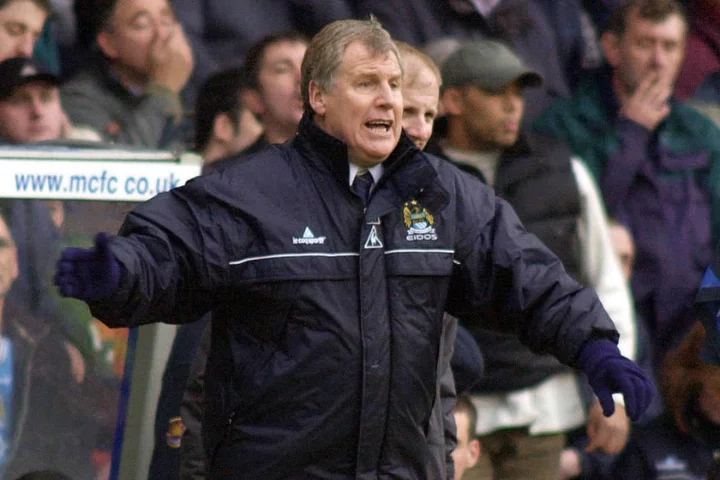
Manchester City’s treble winners arguably greatest ever English team – Joe Royle
Former Manchester City boss Joe Royle says Pep Guardiola’s current side is “one of, if not the best” English football has seen. City completed the treble on Saturday night with victory over Inter Milan in the Champions League final and Royle has no doubts where Guardiola’s class of 2023 ranks in the all-time list. Royle, 74, who led City from the third tier to the Premier League after back-to-back promotions in 1999 and 2000, told the PA news agency: “There’s no doubt about it. They’re one of, if not the best English club side there has been. “They’ve got to be talked of as one of them. They can play off the cuff or play in various systems and they can counter very quickly. “They’ve got world-class individuals, they’ve got the team ethic and they’ve got a very, very strong squad, covering every position.” Manchester United became the first English side to win the treble – league title, FA Cup and Champions League – under Sir Alex Ferguson in 1999, the same year City dropped into the third tier for the first time in their history. The debate will now rage among both clubs’ fans over which is the greater achievement and Royle said: “A treble is a treble. “They’re both equally matched when compared to their rivals in their era and both City and United fans will rightfully claim that their side’s treble was the best.” Under Royle, City ended their one season in the old Second Division, now League One, in thrilling fashion by beating Gillingham on penalties in the play-off final at Wembley. Gillingham had led 2-0 in the final minute of normal time before last-gasp goals from City pair Kevin Horlock and Paul Dickov took the tie to extra-time and then penalties, with Royle’s side winning the shoot-out 3-1. “It was an unforgettable way to win promotion,” Royle said. “And when you consider how far City have come since then, there’s no secret. “The current ownership, with their financial support, have changed City from a side that did sink to the third tier. “We got back into the Premier League, but we certainly didn’t have the funding that the side does today in order for us to stay there and we went straight back down again. “But it’s been mostly on the up since then. It can never be too quick for a club to get in the Premier League. “The current side, look where they’ve gone now. They’ve completed the treble and deservedly so. You can never get there too quickly.” Certainly anyone who finishes ahead of them next season, in England or Europe, is going to be doing very well Former City manager Joe Royle Guardiola’s City have been crowned English champions in five of the last six seasons, but, after finally securing the Champions League Royle, is not sure if they will now dominate Europe in a similar manner. “Football is a season-by-season game isn’t it?” he added. “Certainly anyone who finishes ahead of them next season, in England or Europe, is going to be doing very well. “The money has been spent very well. They’ve generally bought very well. It’s one thing having money and another thing using it wisely and City have been very good at that.” Read More Charity boss speaks out over ‘traumatic’ encounter with royal aide Ukraine war’s heaviest fight rages in east - follow live Brentford turn Kevin Schade loan move into permanent club-record deal Jon Lewis says England are ready for ‘great challenge’ of regaining Ashes Ivan Toney calls FA ‘bit spiteful’ over ban case after missing ‘dream’ World Cup
1970-01-01 08:00
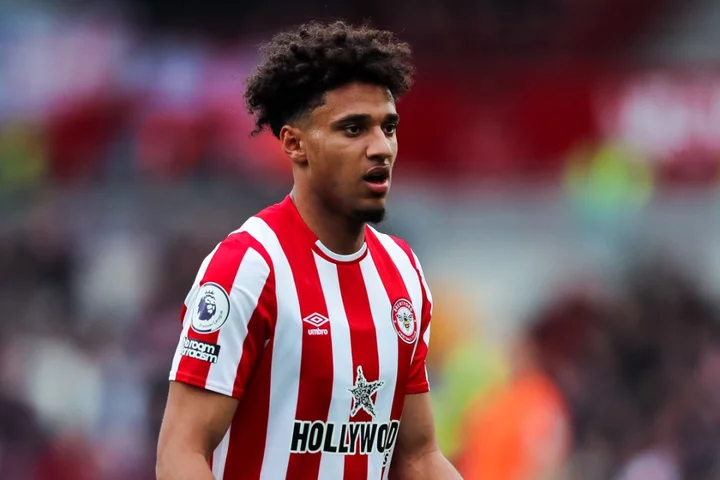
Brentford turn Kevin Schade loan move into permanent club-record deal
Brentford have completed the permanent signing of German forward Kevin Schade for a club-record fee believed to be around £20million. Schade, 21, initially joined the Bees on loan from Freiburg in January and has now signed a five-year contract. Brentford director of football Phil Giles told the club’s official website: “When Kevin joined us on loan in January, we agreed with Freiburg that the move would become permanent this summer if certain conditions were met, which included Brentford remaining a Premier League team for next season. “We have all been pleased with Kevin’s contribution so far, both on the pitch and his professionalism off it, so to have him with us now until 2028 is fantastic for the club. “We all hope both Kevin and Brentford can make further progress from here and look forward to the challenge.” Schade made 19 appearances for the Bees over the second half of last season. Read More Charity boss speaks out over ‘traumatic’ encounter with royal aide Ukraine war’s heaviest fight rages in east - follow live
1970-01-01 08:00
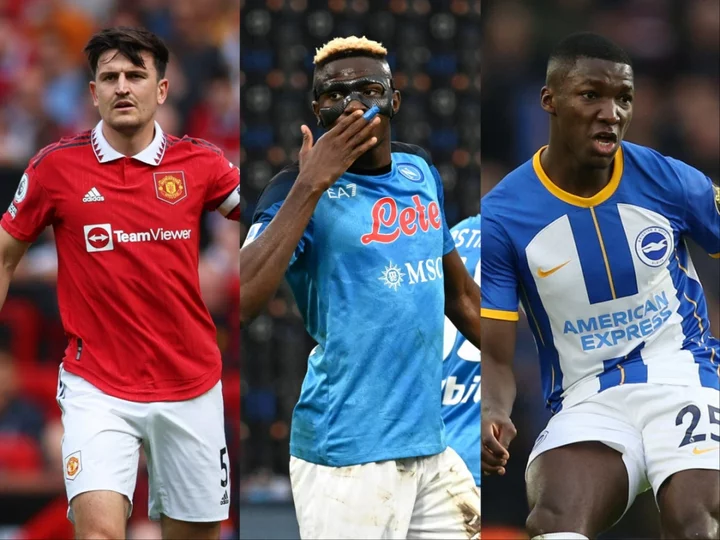
Replacement for Granit Xhaka and a No9 for Mauricio Pochettino: Transfer targets for every Premier League club
With the 2022/23 season completed and Premier League clubs now focused on the summer transfer window, WhoScored.com take a look at which players suit each team’s biggest need over the next eight weeks. First up: from Arsenal to Fulham. Arsenal What do they need - central midfielder Who should they sign - Moises Caicedo With Granit Xhaka set for a Bundesliga return, Arsenal need at least two central midfielders this summer. Declan Rice remains the priority for the Gunners, yet the West Ham star can’t be the only middle man that arrives this summer ahead of their return to the Champions League. Moises Caicedo is another linked with Arsenal and would offer an ball-carrying outlet from deep as well as terrific defensive capabilities to help fill the void that will be left once Xhaka departs. Aston Villa What do they need - winger Who should they sign - Harvey Barnes Having secured a return to European football on the final day of the season, Aston Villa are aware they need to add strength in depth in the off-season ahead of Unai Emery’s first full season at the Villa Park helm. A right-back, winger and striker are the priorities for the Villans this summer, with Harvey Barnes one who’ll tick off a problem position. Barnes’ goal exploits were overshadowed by James Maddison’s form, but the 25-year-old still managed an commendable 13 league goals for the relegated Foxes. Bournemouth What do the need - central midfielder Who should they sign - Tyler Adams Bournemouth boss Gary O’Neil worked wonders in the Cherries hotseat following his appointment as Scott Parker’s successor, but if they are to avoid a relegation dogfight, they need to strengthen in key areas. One of those will be in the middle of the park, particularly with Jefferson Lerma departing following the culmination of his contract. Bournemouth could do a lot worse than raid relegated Leeds for Tyler Adams, the American having ranked third for tackles per 90 (3.7) in the Premier League last season. Brentford What do they need - striker Who should they sign - Viktor Gyokeres Ivan Toney’s suspension leaves Brentford a little light up top. Granted, while the Bees have performed well in his absence, they can’t head into the new season without the services of their 20-goal frontman until January. While a short-term addition would suit all parties, Brentford may instead seek to bring Viktor Gyokeres up to the Premier League. Coventry’s failure to secure promotion means the Swede is seemingly up for grabs and having scored 21 and provided 12 assists last season, Thomas Frank’s side would certainly benefit from the 25-year-old’s addition. Brighton What do they need - central midfielder Who should they sign - Enzo Le Fee Brighton are set to lose both Alexis Mac Allister and Moises Caicedo this summer and while Mahmoud Dahoud and James Milner are tipped to arrive, the Seagulls still look a little light in the middle of the park. Enzo Le Fee was a standout performer for Lorient this season, yet will depart the French side in the coming weeks, and Brighton would be foolish not to consider the 23-year-old. Le Fee ranked third for tackles (108) and seventh for dribbles (68) in the 2022/23 Ligue 1 campaign, while an additional five goals and five assists has helped boost his reputation. Burnley What do they need - central midfielder Who should they sign - Albert Sambi-Lokonga Burnley will need an overhaul in central midfield this summer. They can’t rely on 33-year-old Jack Cork to help beat the drop next season, and so a player who has worked under Vincent Kompany in the past would be a viable option for the Clarets. Albert Sambi-Lokonga spent the second half of last season on loan at Crystal Palace, though still struggled for minutes at Selhurst Park. Arsenal are unlikely to rely upon Lokonga next season, noted by their pursuit of high-profile midfielders, so another short-term move would certainly benefit the Belgian. Chelsea What do they need - striker Who should they sign - Victor Osimhen To put it bluntly - Chelsea need a player to put the ball in the back of the net. Christopher Nkunku is set to sign for the Blues, but another striker would certainly aid their quest to launch a sustained title push under Mauricio Pochettino. Victor Osimhen wouldn’t come cheap, the Nigerian having scored more goals (26) than any other player in Serie A this season, yet with Todd Boehly willing to loosen the purse strings, Osimhen could prove the perfect frontman for Chelsea, and one to rid them of the dreaded No.9 curse. Crystal Palace What do they need - right-back Who should they sign - Sacha Boey Crystal Palace were able to muddle through the season with Joel Ward and Nathaniel Clyne at right-back, but the pair are now 33 and 32 years of age, respectively, and the Eagles could do with some investment in defence ahead of the new season. While he has been linked with Arsenal, Sacha Boey could prove a shrewd capture for the Eagles. The 22-year-old was key in Galatasaray’s title triumph and has made the second most tackles (86) in the Super Lig this season, so a committed body to shore up the defence would certainly be welcomed at Selhurst Park. Everton What do they need - striker Who should they sign - Alfredo Morelos Everton have been linked with a move for Wout Weghorst, the Dutchman having worked under Sean Dyche during their short time together at Turf Moor, as the Toffees seek to sign another striker. However, Weghorst has a poor record in England having scored just two goals in 37 league appearances, so they may be better off perusing the free market. Alfredo Morelos will leave Rangers this summer upon the culmination of his contract and having scored 11 goals and provided five assists in the Scottish Premiership last season, the hot-headed Colombian could prove a handy pick up. Fulham What do they need - centre-back Who should they sign - Harry Maguire Centre-back is hardly a problem position for Fulham, with Tim Ream, Tosin Adarabioyo and Issa Diop all performing admirably for the Cottagers as they beat the drop last season, but with the former now 35, some fresh blood would benefit Marco Silva’s side. Harry Maguire is unlikely to be a Manchester United player once the summer transfer window closes and with their ongoing pursuit of Kim Min-Jae, the England international is expected to leave sooner rather than later. If his England performances are anything to go by, Maguire could prove a solid addition to the Fulham defence, while a fresh start would certainly benefit the 30-year-old. Coming on Tuesday: the ten Premier League teams from Liverpool to Wolves. Read More Toney compares ban to missing out on World Cup squad Pep’s future and Premier League charges – Where next for Man City after treble? Ward-Prowse, Maddison and 12 transfer targets after relegation Football rumours: Wilfried Zaha eyes move to Paris St Germain Wembley Stadium launches dementia friendly match-day experience Tottenham progressing in bid to sign Brentford goalkeeper David Raya
1970-01-01 08:00
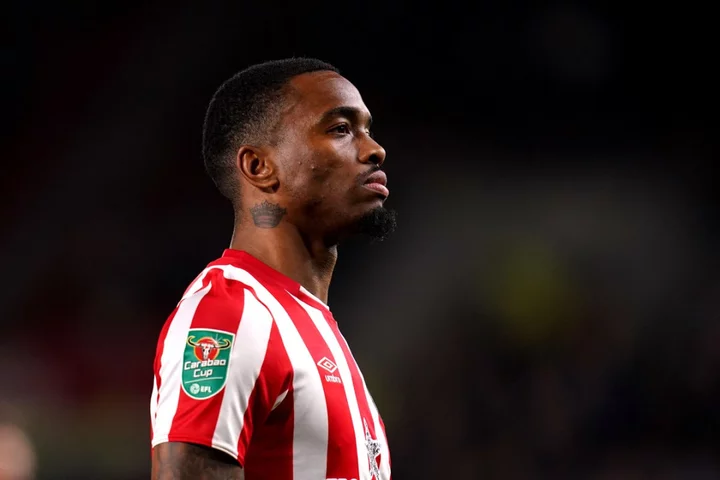
Ivan Toney calls FA ‘bit spiteful’ over ban case after missing ‘dream’ World Cup
Ivan Toney claims the Football Association “was a bit spiteful” in its handling of the Brentford striker’s eight-month ban for breaking betting rules. Toney was charged with 262 breaches in November last year, but had to wait until May before the FA announced his ban and £50,000 fine after he had admitted to 232 of the counts. The 27-year-old missed out on his World Cup “dream” after being omitted from Gareth Southgate’s Qatar 2022 squad and while he accepts his punishment, feels the timing of his charges being made public was harsh. Toney told Kick Game: “It came out just before the England camp. Obviously I missed that and the World Cup. Honestly, that would have been my biggest dream. “It was like, get it out now so he doesn’t go with England and then all of a sudden they want to wait until the end of the season (to announce the suspension). “It is what it is, if they want to do it that way. I call it a bit spiteful, but it is what it is. “I felt like that was a bigger punishment. Even now I’m missing eight months of football, I feel that was a bigger punishment, missing out on the World Cup, everybody’s dream, to missing eight months of football.” Toney’s breaches of FA Rule E8, the general prohibition on betting on football by a participant, took place over five seasons from February 25, 2017 to January 23, 2021. The FA revealed that the forward had placed 13 bets on his own team to lose in seven different matches during the 2017-18 season, 11 of these bets were against Newcastle when he was out on loan away from the club. Two other bets were placed on a game between Wigan and Aston Villa, but Toney, on-loan at Wigan at the time, was not involved in the matchday squad. “None of it was match-fixing,” Toney said. “None of what I did or was accused of doing, none of it was match-fixing. “If it was I understand that, ban me for eight months or if not longer.” England boss Southgate has been critical of the wide-reaching nature of Toney’s ban, which prohibits him from training until September 17 and from playing again until January 17 next year. Toney said he was grateful for Southgate’s support and also for that shown by his club and vowed to come back an even better player after finishing the season third in the Premier League’s scoring chart with 20 goals. I don't want anybody to feel sorry for me. A punishment is a punishment, just get on with it Ivan Toney “It felt good. Obviously, it’s going to do, the England manager backing you and standing with you,” Toney said. “I think he probably sees it as a bit harsh as well. “Not letting me train or be around the team for however long, but I’ve got the right people around me. “Every season I’ve got better, scoring more goals, and I’m hungry now to get back. When January comes, you’re going to see a different animal. “I don’t want anybody to feel sorry for me. A punishment is a punishment, just get on with it.” The PA news agency has approached the FA for comment. Read More Charity boss speaks out over ‘traumatic’ encounter with royal aide Ukraine war’s heaviest fight rages in east - follow live PGA professional with cerebral palsy hopes others will follow in his footsteps How does grand slam king Novak Djokovic compare to his rivals? French Open Q&A: Djokovic eyeing calendar Grand Slam and can Brits bounce back?
1970-01-01 08:00
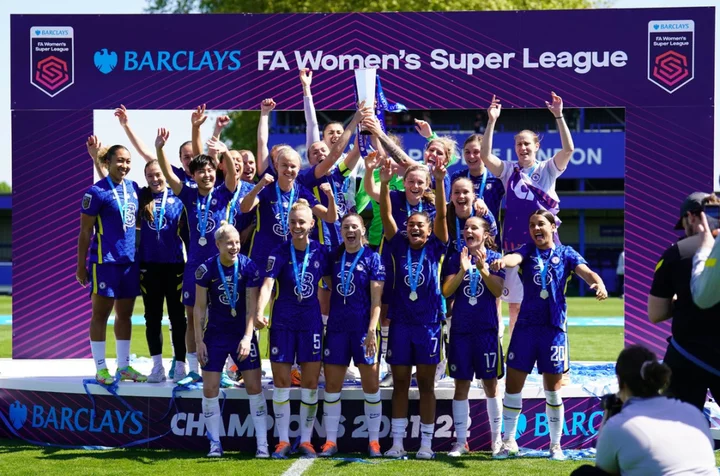
WSL revenues were rising even before Lionesses win - but clubs still posting loss
Women’s Super League clubs saw aggregate revenues rise by 60 per cent in a record-breaking 2021-22 season, according to new figures published by Deloitte. Clubs brought in combined revenues of £32million, up from £20million in the previous season, with the increases driven by new commercial and broadcast deals. The higher revenues helped clubs bring down their aggregate wages-to-revenue ratio from 92 per cent to 78 per cent despite wages rising to a combined total of £25million, up 37 per cent on the previous campaign. Clubs made an aggregate pre-tax loss of £14million, according to Deloitte’s Annual Review of Football Finance, which will be released in full on Thursday. From the start of last season, WSL and Women’s Championship clubs enjoyed the fruits of the largest broadcast deal of any professional women’s football league, worth a reported £8million per season. WSL clubs took a 75 per share and Championship clubs 25 per cent, with an equal fixed amount per club, plus a share based on league position. Deloitte noted that revenues should continue to rise. A new title sponsorship deal which began this season includes a £30million investment into the WSL and Women’s Championship from 2022-25, while clubs are also benefitting from increased attendance. Matchday revenues accounted for nearly 10 per cent of WSL clubs’ combined revenues during 2021-22 with an average league attendance of 1,923, but with crowds up by nearly 200 per cent to 5,616 per match in the season just finished, those numbers should increase considerably. Zoe Burton, director in Deloitte’s Sports Business Group, said: “The women’s game achieved significant leaps in revenue in the 2021/22 season. “The Lionesses’ success at the UEFA Women’s Euros is pinned as an inflexion point for the popularity of women’s football, so it’s telling that even before this historic win revenues had begun to grow in the Women’s Super League. “We have already seen new records set for attendance, viewership and the value of commercial partnerships in the 2022/23 season. “Organisations should not be shy about the commercial opportunities available in women’s football, and we are now reaching the point where clubs can seek to maximise the value associated with the women’s game by unbundling revenue streams to target a unique fanbase.” Deloitte found that WSL clubs continue to receive significant backing from their wider organisations, with group income accounting for around 40 per cent of revenue across the league. That backing will be used to cover the losses made by WSL clubs. The range in wage costs across the WSL clubs increased from £2.7million in 2020/21 to £3.6million in 2021/22. PA Read More Reading to go part-time after Women’s Super League relegation England announce Women’s World Cup squad as Beth Mead misses out Kelly Smith backs Arsenal to return ‘stronger’ and challenge Chelsea for WSL title next season Reading to go part-time after Women’s Super League relegation England World Cup squad: Bright and Bronze included but Beth Mead misses out Arsenal backed to return ‘stronger’ and challenge Chelsea for WSL title next season
1970-01-01 08:00
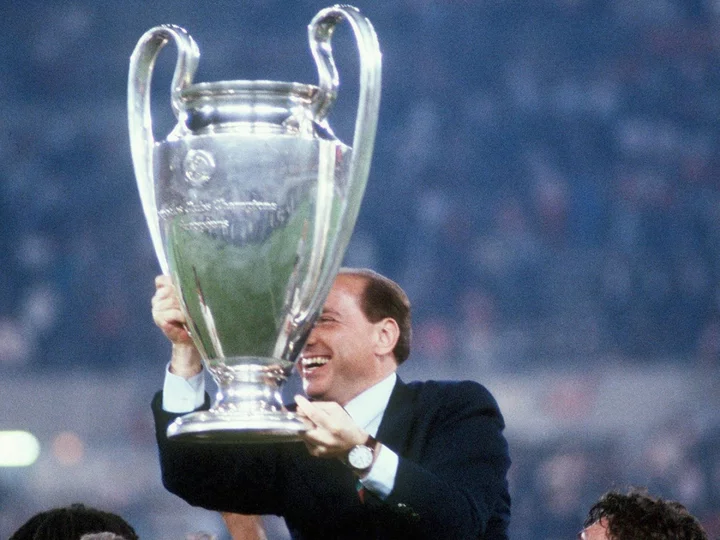
The story of Silvio Berlusconi and the birth of the Champions League
A version of this story was published in February 2017 Diego Maradona was one of many players struck by the strange “uniqueness” of the occasion. He wasn’t to know the half of it. Because, the last and only other time that Napoli travelled to Real Madrid - back in the 1987-88 European Cup - it involved a hugely bad-tempered game that also saw a manager call a player a “mafioso” and took place in front of no fans and in an odd silence, due to crowd trouble the previous season from Real’s infamous Ultrasurs. It was hardly the setting for such a highly anticipated match between two heavyweights, not to mention the meeting of one of the greatest players ever and the most successful European Cup club ever. All of that will likely get replayed in the build-up to Napoli’s return to the Bernabeu on Wednesday, but none of it is what really makes that 1987 match unique. This was actually the game that changed European football. AC Milan owner Silvio Berlusconi was one of many watching, but he couldn’t share in the excitement around the fixture. He was aghast at the fact that two clubs like that could meet as early as the first round of the competition, as was happening here. It was hardly the stage to waste such a highly anticipated clash, or to waste one of the sides that would be eliminated but instead should have been making the competition all the more enticing later on. Berlusconi naturally feared the same could happen to his own club, but also had wider concerns. So, he set in motion his plans for a European super league. That didn’t happen, but the idea - and the threat - directly led to the creation of the Champions League, and the super-club-dominated era we have today. It is also a situation with several levels of irony. What is only the second ever tie between Real and Napoli is now seen as a novelty in a last-16 stage that has meetings of Barcelona-PSG and Arsenal-Bayern Munich both being replayed for the fourth time in just five years, a level of repetition that has dulled some of the Champions League’s intrigue and mystique. It was exactly the intrigue and a mystique of a rarely-played fixture coming in the competition’s old opening knock-out round, however, that led to that. What’s more, this growth of the Champions League has someway cannibalised some of those who were initially so behind super league ideas - from Rangers in Scotland to Liverpool and even Milan themselves. It’s certainly difficult not to wonder what Berlusconi now thinks about Milan’s meek drift away from the glamorous competition he helped create. You don’t have to wonder what Real and Napoli thought on being drawn against each other so early in 1987, though. They were stunned. Part of the reason was that the first-time Italian champions had no European pedigree, so were unseeded. Real’s pedigree was emphasised by the fact this was their 100th European Cup match at the Bernabeu, making it all the more incongruous that it would take place in front of the stadium’s empty stands. A two-game closed-doors order was the price for crowd trouble in the previous season’s semi-final against Bayern Munich. It was probably oddly fitting that the match that would prove so transformative for the quality, glamour and scope of the competition, however, was a poor game played in front of nobody. Described by Mundo Deportivo at the time as a “cold” occasion where the players were “orphaned” on the pitch, it did heat up between the teams. Both squads probably took Maradona’s demand to “go and batter them!” a bit too literally. Many kicks and apparently punches were traded, a bag of ice was thrown at Real manager Leo Beenhakker, and Napoli’s Salvatore Bagni later claimed the Dutch coach and some of his players had called him “mafioso”. Beenhakker did apologise for that before the second leg, again citing the “unique” circumstances of the game, but from the vantage point of a 2-0 victory. The goals summed up the level of performance. Michel scored from a penalty, Fernando De Napoli was responsible for an own goal, all to the sound of silence. Returning to Spain for the first since leaving Barcelona in 1984, Maradona had been marked out of the game, and blamed Napoli’s poor display on the pressure of a first appearance in the competition. “You don’t have to exaggerate,” he said. “We did not see the true Napoli, perhaps because of the responsibility of a debut in the European Cup.” It was exactly this kind of quirk, however, that so concerned Berlusconi. He just couldn’t see the logic in the competition’s best - and most televisually lucrative - teams potentially going out because of one bad night, one stroke of bad luck. It was precisely this Berlusconi feared for Milan, as he admitted in what would prove a hugely prescient interview with World Soccer in 1991. Amid predictions about the decline of international football and how European Union regulations would completely condition the continental game, the mogul came out with the following: “The European Cup has become a historical anachronism. It is economic nonsense that a club such as Milan might be eliminated in the first round. It is not modern thinking.” Berlusconi had shown a lot of very modern thinking, particularly by football’s conservative standards, since taking over Milan in 1986. Though always a fan of the club, he saw them as one arm of his business empire. Berlusconi made little secret of his plans to use both the Rossoneri brand and his media company Mediaset together to maximise both. Having already revolutionised broadcasting in Italy with the way his innovative approach to regional stations evolved into the country’s first national private TV station in Canale 5, he had similar plans for football. Berlusconi felt the sport was utterly wasting its potential in this area, and not at all reaching a potential pay-TV audience of millions and beyond. He thought it absurd that the biggest clubs in a sport that involved so many popular stadium events were not regularly meeting in glamorously lucrative matches. Martin Schoots is now a prominent European agent representing players such as Christian Eriksen, but was then a journalist primarily covering the three Dutch stars at Milan - Marco van Basten, Ruud Gullit and Frank Rijkaard - and was always impressed with Berlusconi’s approach when they met. “He was a visionary,” Schoots says,” and very clear and convinced about what developments would come. His philosophy was that football was a spectacle.” Or, as was put by some of those close to Berlusconi, “the television spectacular world-wide” - and the potential audience for his Canale 5. Making the European Cup a super league was not quite a new idea, though. That had actually been creator Gabriel Hanot’s initial plan for the competition in 1955 in order to better reflect “rightful” champions than the nuances of knock-out football, but proved impractical with the travel and communication of the time. Liverpool had also come up with a discussion document suggesting mini-leagues in 1978, around the time they were drawn against Nottingham Forest in the first round, and that had been revived in 1984. No-one, however, had gone for it with the same force or sense of structure to it as Berlusconi. this Super League was based on merit, tradition and television - and therefore it was a league for big television markets Alex Flynn After initial moves with Real president Ramon Mendoza were rejected, the Italian businessman decided to commission a blueprint for a ‘European Television League’ in 1988. The man who ended up with that commission was Alex Fynn, then of Saatchi and Saatchi. A huge football supporter, Fynn had already given a talk at an event for the Rothman’s Football Yearbook called a ’10-point blueprint for football’, suggesting exactly a European super league. It was subsequently printed in the Times, and word got around. “A few weeks later, I got a call from the head of our Italian agency,” Fynn tells The Independent now. “He said ‘here’s the job you always wanted: design a super league for Berlusconi.’ And the reaction? “My reaction? My reaction was my head was turned, I was flattered, and I did what I thought he wanted - not necessarily what football needed. So this Super League was based on merit, tradition and television - and therefore it was a league for big television markets. I think it had a league of about 18 clubs and certainly two each from England, Italy, Spain… that was the plan.” It was a plan initially rejected by Uefa, but had still done its job. The idea was out there, as was the underlying threat of a possible breakaway and possible changes were now on the table. “He decided to publicise it and use it as a stalking horse and catalyst to support his argument,” Fynn says of Berlusconi. “I think it went further than that. When someone like Berlusconi has a plan for a breakaway European super league, even Uefa had to sit up and take notice. The underlying threat was this businessman might have the wherewithal to do what he says. In theory, breakaways aren’t tangible, because they need the sanctioning of Uefa and Fifa. So maybe he realised that and maybe all he was doing was to produce the plan to affect some sort of change that would benefit his club and his commercial business - which of course it did.” Uefa fundamentally realised the dilemma between trying to keep the big clubs happy and keeping their structures intact, and thereby had to strike a balance, setting a dynamic that would lead to the current situation - but keep tilting one way. In the autumn of 1991, at an extraordinary Uefa congress, the then 35 members voted in new proposals, this time primarily put drawn up by Mendoza and former Rangers secretary Campbell Ogilvie. The quarter-finals would be replaced by a group stage, and league systems would be part of the competition for the first time. Even more important than that structural change, though, Uefa contracted the marketing company TEAM to sell it. The competition would the next season become the Champions League - to create what Fynn describes one of international sport’s two “supreme branded events” along with the NFL, right down to the distinctive classical anthem - an exclusive ‘family’ of corporate sponsors were signed up, and TV packages would be sold to the highest bidder, based on market share. Big clubs from the leagues with the largest TV markets would earn more and more money, accumulating more and more political capital Crucially, Berlusconi’s broadcasting model had properly permeated club football for the first time. The European game’s governing body had adopted many of its principles, as would the Premier League and many of the continents major clubs, bringing huge finances into the game - but also greater disparities than ever before. Big clubs from the leagues with the largest TV markets would naturally earn more and more money, accumulating more and more political capital, to the point more and more changes to the Champions League were inevitable. Finally, with two of this week’s fixtures offering the clearest examples in Barca-PSG and Arsenal-Bayern, we have the regular “television spectaculars” Berlusconi so envisaged. He probably didn’t envisage them, however, without Milan. That team he created, however, might still be the most influential in history. Because, just as they were changing football on the pitch with Arrigo Sacchi’s tactical ideas, the club were also changing football off it through Berlusconi’s economic ideas. And, if it was fitting that the first leg of the Real-Napoli tie was so off-putting given the change that would follow, it was equally fitting the return would give a sign of what was to come; what was capable - both in terms of the event, and the takings. This truly was the “television spectacular” Berlusconi desired. In front of a raucous 82,231 crowd at Napoli’s San Paolo stadium, and with Brazilian star Careca back in the team after injury, the revenge-driven home side finally did what Maradona demanded and “battered” Real in the right way. If only for 44 enticingly intense minutes. That Real team never got beyond the semi-finals, and were the very next season hammered 5-0 by Milan in a historic landmark of a game Defender Giovanni Francini had set the occasion alight by making it 2-1 after just after the half-hour, and Napoli could have added many more before Careca - of all people - missed a fine chance on 40. Within four minutes, Emilio Butragueno had scored the decisive goal. Real were through. If history regularly repeats itself, it’s interesting how so many of the same debates do, too. In the aftermath of that game, Maradona’s European pedigree was questioned, while Butragueno’s clinical brilliance was widely praised. Neither would actually end up winning the European Cup, as that Real team never got beyond the semi-finals, and were the very next season hammered 5-0 by Milan in a historic landmark of a game. At the time, though, Real were convinced they were on the brink. They even celebrated that victory in an unusually ostentatious manner. Beenhakker was remarkably moved to declare a mere first-round win - for a club that had then won the competition six times - as “a result for history”. It was to prove exactly that, but not in the way he imagined. The future could already be imagined from Napoli’s earnings from the game. They received 10,000 million lira due to both ticket and television sales, estimated at that point to be a world record. The die had been cast - and is still rolling. The Champions League continues to gradually change according to the preferences of big clubs, if at a somewhat glacial pace. “The big clubs never have enough money,” Fynn says. “That’s why you can never satisfy them, whatever changes you make.” Right now, what generally happens is that we see a lot of the same clubs, and a lot of the same fixtures in the latter stages of the competition - to the point Real and Napoli is again a novelty. It is thereby a fixture that will forever remain unique. Read More Pep’s future and Premier League charges – Where next for Man City after treble? How Pep Guardiola can become the undisputed greatest manager Man City fans feel let down by Uefa’s ‘shambolic’ organisation of Istanbul final Football rumours: Wilfried Zaha eyes move to Paris St Germain The sporting weekend in pictures Pretty Woman makes Pep Guardiola’s day as Julia Roberts hails Man City champions
1970-01-01 08:00
